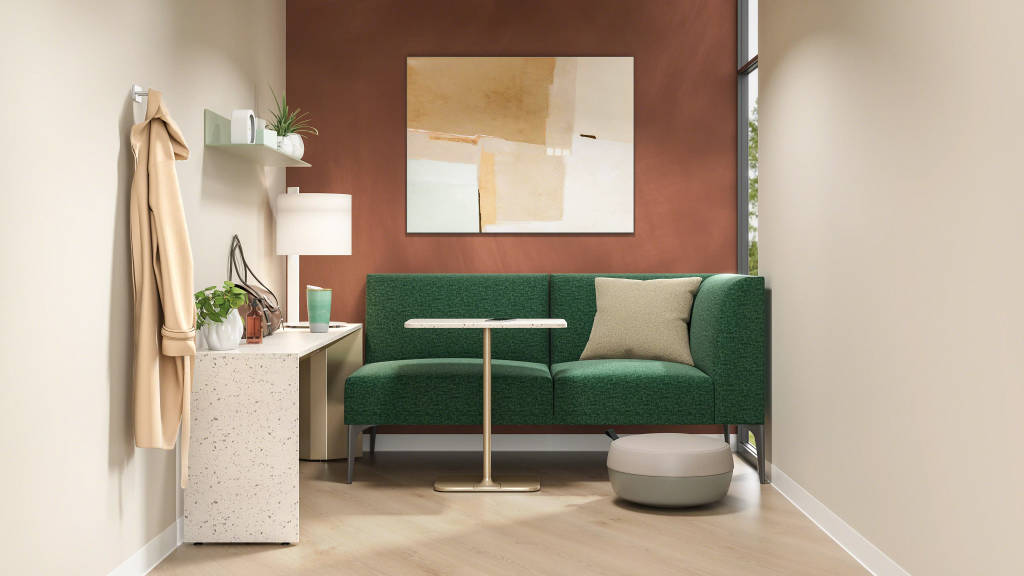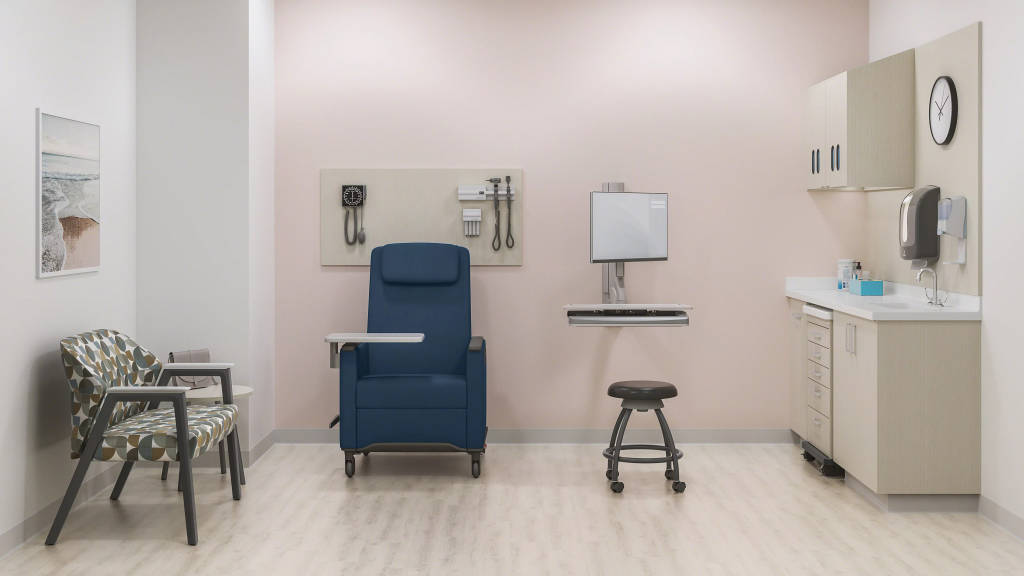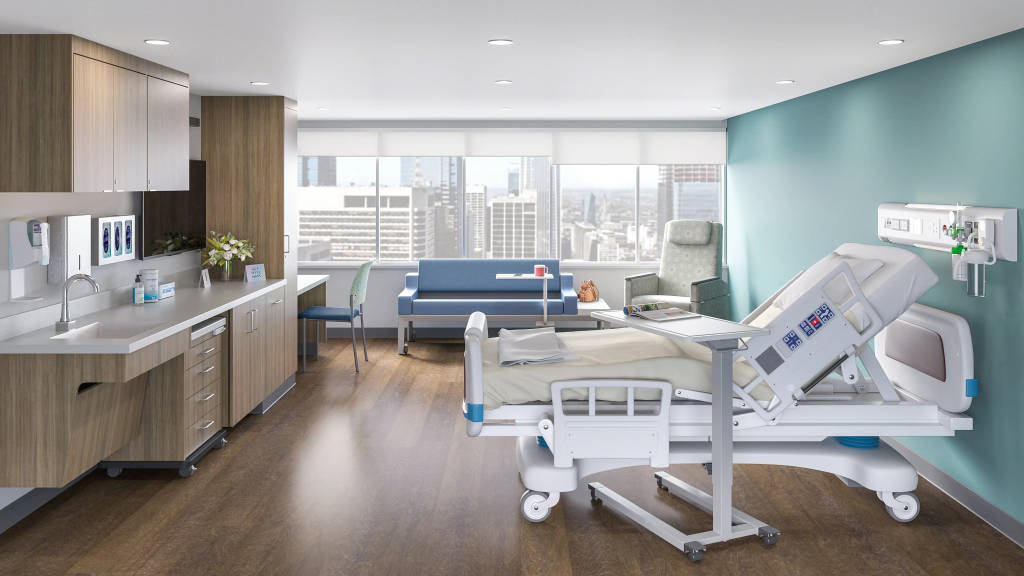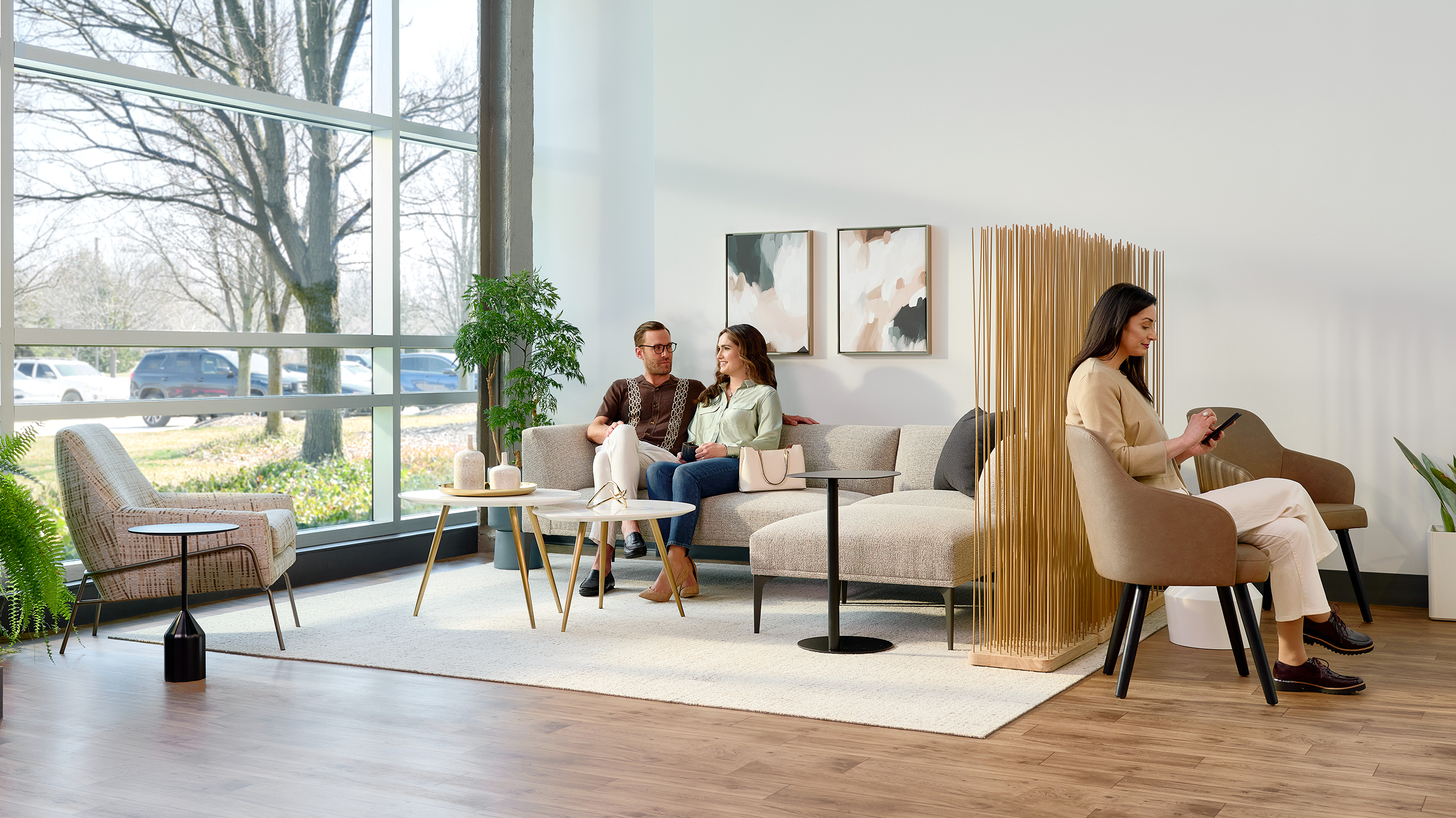Recently, Omaha has seen significant investments in healthcare. The emphasis on adaptable and patient-centric spaces aligns with the goal of providing cutting-edge care in the region. As such, we talked to Mike Felker, Workplace Consultant, to explore how thoughtful design of healthcare spaces can increase patient satisfaction to further Omaha’s reputation as a healthcare destination.

Making Space for Health: This concept advocates for adaptable, patient-centric spaces that prioritize well-being and healing. “It envisions healthcare environments that are flexible, allowing for quick adjustments to evolving patient needs,” said Felker. These spaces will offer a sense of control and comfort through versatile layouts and modular furniture.
“Moreover, personalization will play a pivotal role in future healthcare spaces,” added Mike. Patients will be able to personalize their surroundings with movable screens, adjustable lighting, and acoustical privacy. Integrating natural elements, such as indoor gardens and natural light, will be essential to reduce stress and enhance the patient experience.
Additionally, fostering collaboration among healthcare providers will be a priority, with spaces designed to encourage communication and teamwork. These developments will result in more efficient care delivery and ultimately benefit patients.

Designing Healing Spaces with the Comfort of Home: “Future healthcare spaces will aim to emulate the comfort and familiarity of home.” predicts Mike. Residential aesthetics will be integrated, featuring soft colors, cozy furnishings, and warm artwork to create an inviting and reassuring atmosphere.
Inclusivity will be a cornerstone of healthcare design, ensuring that spaces are accessible to all patients, regardless of their abilities. Ergonomically designed furniture will enhance the patient experience and support the well-being of healthcare providers who spend extended hours caring for patients.
Moreover, technology will be seamlessly integrated into healthcare spaces, streamlining care processes, improving communication, and enhancing patient engagement. Telehealth capabilities and easy access to medical records will contribute to efficient and patient-centered care.

Designing Better Healthcare Experiences: The future of healthcare design emphasizes the emotional and psychological aspects of care. Healthcare spaces will be designed to provide emotional support for patients and their families. Comfortable waiting areas, private consultation rooms, and access to support services will create a holistic healing experience.
Empathetic design will be a priority, with spaces tailored to minimize stress and anxiety, fostering an atmosphere of empathy and understanding. “Staff well-being will also be at the forefront, with designated areas designed for rest, relaxation, and social interaction to combat burnout and enhance care quality,” said Felker, stating the importance of designing for everyone in the space.
Clear signage and intuitive wayfinding will make it easier for patients and visitors to navigate complex healthcare environments. Ensuring accessibility for all users, regardless of mobility or sensory challenges, will be a fundamental aspect of future healthcare design.

In conclusion, the future of healthcare space design is a holistic and patient-focused approach that prioritizes adaptability, personalization, inclusivity, and empathy. This transformation in design not only enhances the healing experience but also supports staff well-being and overall healthcare quality. For Omaha, these design trends have the potential to amplify recent investments and position the city as a leader in innovative healthcare.

SBI offers a comprehensive portfolio of solutions for every part of the healthcare environment. To learn more, contact us today to talk to a Workplace Consultant.
